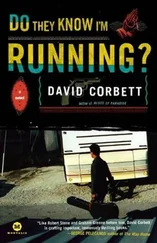His name was Eustace, but everyone called him Snuff. He was the youngest of the Akers brothers, named for an uncle in Arkansas. He opened the passenger door then pulled himself back up behind the wheel, waiting.
“I’ve got a chore or two to see to,” she said.
“Yeah, well”- Snuff scratched his cheek with his shoulder- “I mean, Roy says.”
Not now, she thought, and yet she knew Snuff was not conveying a casual invite. Roy couldn’t stand Shel, the feeling was mutual, and they only dealt with each other face-to-face when Roy’d had enough of trying to get through to Frank.
She climbed in beside Snuff, saying, “You’re bringing me back here in ten minutes.”
Snuff hit the gas. “Sure, sure, whatever. I got to relieve what’s-his-name out at the gate, anyway.” He faced front and smiled a prankish smile. “Had to bypass the kill switch to get this baby hoppin’,” he said. He pointed to the steering column from which the ignition cap had been pried away. His eyes glowed. “And check out these seats.” He patted the upholstery. “Is Lyle gonna shit or what?”
“Don’t tell me what I don’t want to know,” Shel said.
“Sure, sure, whatever.”
He drove with a quart of ale between his legs, fingers toodling the bottleneck. From the look of him, Shel guessed he was in the third or fourth day of a serious tweak. His eyes and skin looked twice as old as his years, except for a scab of acne arching high across each cheek. He wore jeans, Doc Martens, a soiled rugby shirt and a Raiders cap turned backward.
The car broke into the clearing in which the work sheds lay. A walnut orchard encircled the compound, the trees layered four rows deep. A trio of bluetick coonhounds greeted them at the gate, which was drawn aside by another of the Akers, this one named Hack, armed with a Remington shotgun.
Off to the side, a semitrailer container sat without wheels, planted on a low bank of cobble. It bore on its side the slogan of the company from which, Shel guessed, the Akers brothers had stolen it: LIFE IS A BANQUET- EAT OUT TONIGHT. A power line ran from one of the bunker silos to the container, and a mushroom vent poked up from its roof. Bags of cat litter and coffee filters, bedsheets and glassware and tubing and old batteries lay scattered about. This gave Shel a pretty good idea that this was the meth lab.
Snuff drove the Camaro between two bunker silos to a tin warehouse in the back of the compound. Machine parts and a cast-off drag chain littered the foreyard. A trash fire burned in an iron drum, sending rubbery shadows up and down the corrugated wall.
The warehouse’s double doors were drawn back, and Snuff pulled the Camaro in slowly, parking on a weighing platform for cattle trucks. The warehouse consisted of one large bay with work lights hung from the ironwork overhead, like tiny caged stars. Beams reaching floor-to-ceiling ran in parallel flanks, front to back. In combination with the high peaked roof they gave the interior the feeling of a big tin church.
Music thundered from a Blaupunkt stereo. Snuff opened his door and gestured for Shel to get out, too. Jumping down from the weighing platform, he shuffled toward his brother Lyle and the truck driver for the night’s run. The trucker was a longhair redneck, the preferred variety of life-form around the Akers property. He wore grease-stained jeans and a Redman cap. His hands trembled constantly.
Lyle Akers wore coveralls and steel-tip boots. He and the trucker shared a joint, seated on a picnic bench behind a torn-down 351 Cleveland four barrel taken from a Grand Torino, stolen earlier that night. Snuff eyed the engine as he approached, jerked a thumb over his shoulder and assailed the two men with, “Got you guys some more beef to butcher.”
Lyle inhaled long and deep, snorted, then passed the reefer to his pal. Eyeing his younger brother with annoyance, he peered past him to the Camaro parked on the weighing platform. He rose to his feet and stepped toward Snuff, feigning a blow to his midriff then plucking the Raiders cap off his head.
“Hey, hey,” Snuff said, reaching.
Lyle held him at bay with a palm to his chest. “Now don’t get ear-a-tated, Snuffo.” Using the cap, he swatted Snuff three times hard across the face, then forced the cap back down on his head, jerking the brim sideways. “No point gettin’ earrrrr-a-tated.”
Snuff tore the hat off his head, put it back on the way he wanted, then huffed off, eyes scalding.
Shel asked: “Lyle, where’s Roy?”
Lyle cleared his throat and spat, then gestured toward a makeshift office at the back of the warehouse. Drawing an oil rag from his pocket, he wiped his hands and stepped toward the shiny red Camaro his baby brother had brought him to cannibalize.
Walking back to the office, Shel navigated piles of construction material stolen by the brothers from construction sites around the state: sandwich panels, cork tile, vermiculite, shiplap and burned clay flooring. A wood plank stair led up to the office door. Inside, Roy Akers sat at a sawbuck table, smoking a cigarette despite the fact that within arm’s reach lay two buckets of used degreaser, a five-gallon gas can and a spilljar of two-stroke oil. What is it, Shel wondered, about Arkies and this nonstop game with fire?
A lamp with a bare bulb, no shade, sat atop the table, and in its light Roy’s features seemed unusually haggard. He had salt-and-pepper hair worn long and brushed back. The collar of his leather jacket lay tangled around his neck and a rim of undershirt peeked through a gaping tear in his sweater. With a rag he wiped grease from the leads on a small electric motor. Seeing Shel, he put the motor aside, stubbed out his cigarette, and wiped his fingers. Without smiling he gestured her forward, into the one available chair. He pulled the cork from a bottle of Everclear, poured several ounces into a glass of ice and topped it with a splash of water and powdered lemonade. The concoction was referred to by the boys as a Peckerwood Highball. He stirred it with his finger. Producing a second glass he tinked the bottle of alcohol against its edge and looked up inquiringly.
“God forbid,” Shel said, sitting down.
Roy shrugged and put the bottle down, reinserting the cork. Given the stench of paint and chemicals in the air, it was impossible to tell from the smell of him how cranked he was.
He eyed her at length, then said, “You look well.”
“You don’t. Can I go?”
Roy emitted a raspy chuckle and took a sip from his glass. Lemonade powder clung to his finger and he licked at it.
“Sit tight,” he said. “Let me think on this for a spell.”
Shel sat there watching Roy think on it. It was not an attractive process, she decided.
To Shel, Roy had the predictable insecurities of an oldest son, particularly the oldest son of a conniving, ruthless father, a father who’d raised four sons principally for the cheap labor they provided and who played them, one against the other, every day of their lives. Roy had tried to make up for all his resulting deficiencies in manhood by cultivating a near-hysterical enthusiasm for menace. Respond to fear by inflicting fear, that was his guiding rule. Don’t get scared, get crazed. Even his brothers gave him a wide berth when he struck that certain mood.
Shel suspected the reason Roy pimped Rowena wasn’t for the money or the tawdry thrill, but for the effect it had on the men around him. It made them think: His women crawl for him. They take it. And in the lowborn milieu in which the Akers clan operated, this was serious medicine. Other men realized there’d be no appealing to Roy’s better side. He availed no such side, not even to his father, whom he feared.
Roy freshened his drink with a spurt from the bottle. He twirled his glass instead of stirring it this time. The ice made a tiny racket.
Читать дальше












